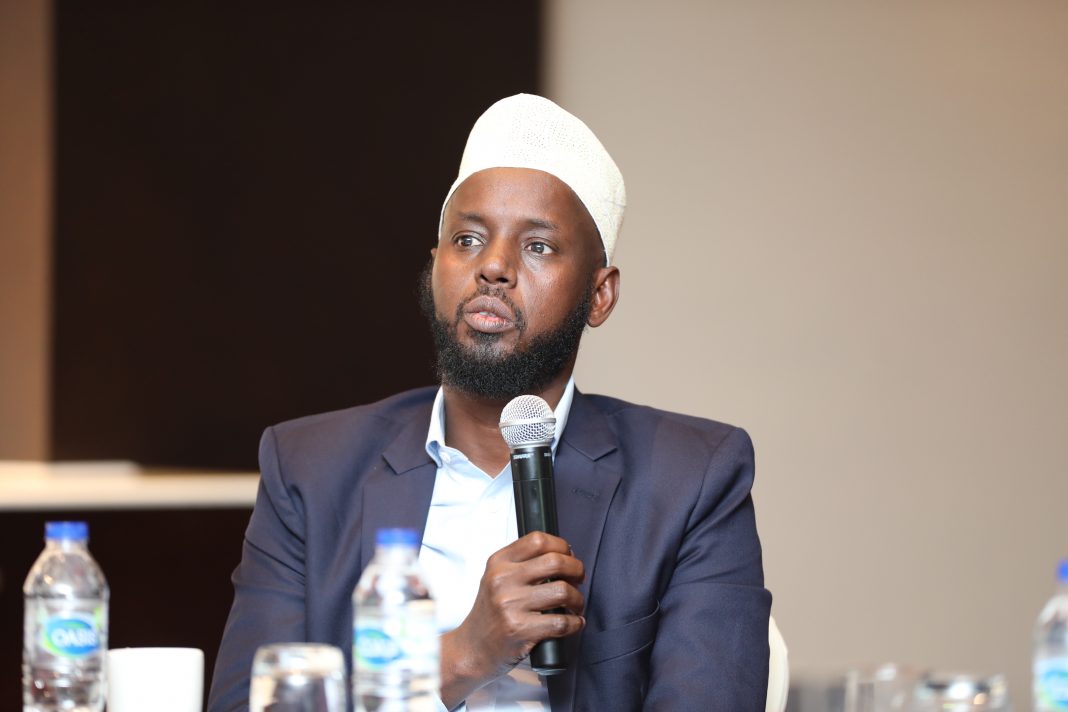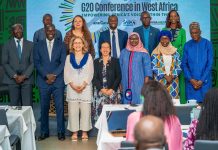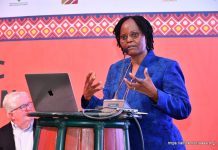By Milliam Murigi
As the world prepares for the 30th United Nations Conference of the Parties on Climate Change (COP30), a new policy brief is urging leaders to move beyond lofty ambitions and deliver tangible results.
The brief by Power Shift Africa, which outlines Africa’s expectations, calls on the COP30 Presidency and African negotiators to ensure that the 2025 summit marks a decisive shift from ambition to action.
“Africa is heading to Belém, Brazil, for COP30 with a clear and urgent message for the world: the time for climate promises is over it is time for delivery,” said Mohamed Adow, Founder and Director of Power Shift Africa.
Titled, African Priorities for COP30, the report outlines the continent’s vulnerabilities, priorities, and opportunities, stressing that this “Implementation COP” must prove that the multilateral climate system can deliver results for the world’s most affected regions.
“Africa brings solutions, renewable energy potential, and a vision for climate justice rooted in fairness and shared prosperity. What we need now is delivery- of finance, of technology, and of trust,” Adow said during the launch.
Africa is warming at twice the global average despite contributing the least to climate change. The continent’s annual adaptation needs exceed $70 billion, yet it receives only about $15 billion in support. Loss and damage costs could soar to nearly $500 billion by 2030.
Against this backdrop, the brief calls for tripling adaptation finance beyond the current pledge to double by 2030 and for embedding finance and technology transfer as binding obligations under the UN climate framework, not voluntary gestures.
According to the brief, Africa’s position is not about seeking special treatment but demanding fairness and consistency. It calls on developed countries to operationalise Article 9.1 of the Paris Agreement, which legally obliges them to provide financial resources to developing nations for climate action.
“Africa arrives at COP30 determined to drive a new era of climate cooperation grounded in equity and opportunity,” said Amos Wemanya, Global Project Co-Lead, Fair Share for People and the Planet at Greenpeace. “The continent has the renewable energy capacity, human talent, and ambition to power a cleaner and more resilient global economy, but we need fair access to the finance and technology that make this possible.”
Beyond finance, Africa wants COP30 to accelerate adaptation efforts by adopting measurable indicators under the Global Goal on Adaptation (GGA) and strengthening the Fund for Responding to Loss and Damage to ensure easier access for frontline communities.
The report also stresses that Africa’s climate transition must be just, inclusive, and development-centered. It proposes transforming the Just Transition Work Programme (JTWP) from dialogue into delivery through a Belém Action Mechanism and a Just Transition Technical Assistance Network to help developing countries design and finance equitable energy transitions that promote job creation, industrial growth, and poverty reduction.
“We are also calling for the creation of a Technology Implementation Programme to remove barriers such as intellectual property restrictions and empower African countries to become innovators rather than consumers of imported technologies,” added Mohamed. “This includes establishing regional technology hubs to drive local innovation, manufacturing, and research across the continent.”
On trade, the report warns against unilateral measures by developed countries such as, the European Union’s Carbon Border Adjustment Mechanism and deforestation regulations, which could undermine Africa’s industrialisation and competitiveness. It urges COP30 to address these measures formally and reaffirm that climate action must not become a tool for economic discrimination or “green protectionism.”
One of the most contentious issues highlighted is Brazil’s proposed Tropical Forests Forever Facility, which seeks to raise $125 billion to protect tropical rainforests. While the initiative appears promising, African experts fear it could deepen debt for developing countries.
“The fund depends on loans and bonds, meaning that developing countries could end up paying interest through debt finance to carry out conservation,” warned Dr Wafa Misrar, Campaign and Policy Lead for Climate Action Network (CAN Africa). “This is neither new nor fair, but another distraction and market-based mechanism that benefits investors more than the countries they claim to support.”
The report concludes by urging the COP30 Presidency to uphold transparency, inclusivity, and accountability while resisting side deals and unilateral initiatives that weaken the UN climate process. It also calls on African negotiators to maintain unity and work strategically across finance, adaptation, and trade while collaborating with civil society, youth, and indigenous people to ensure climate diplomacy remains people-centred and justice-driven.







